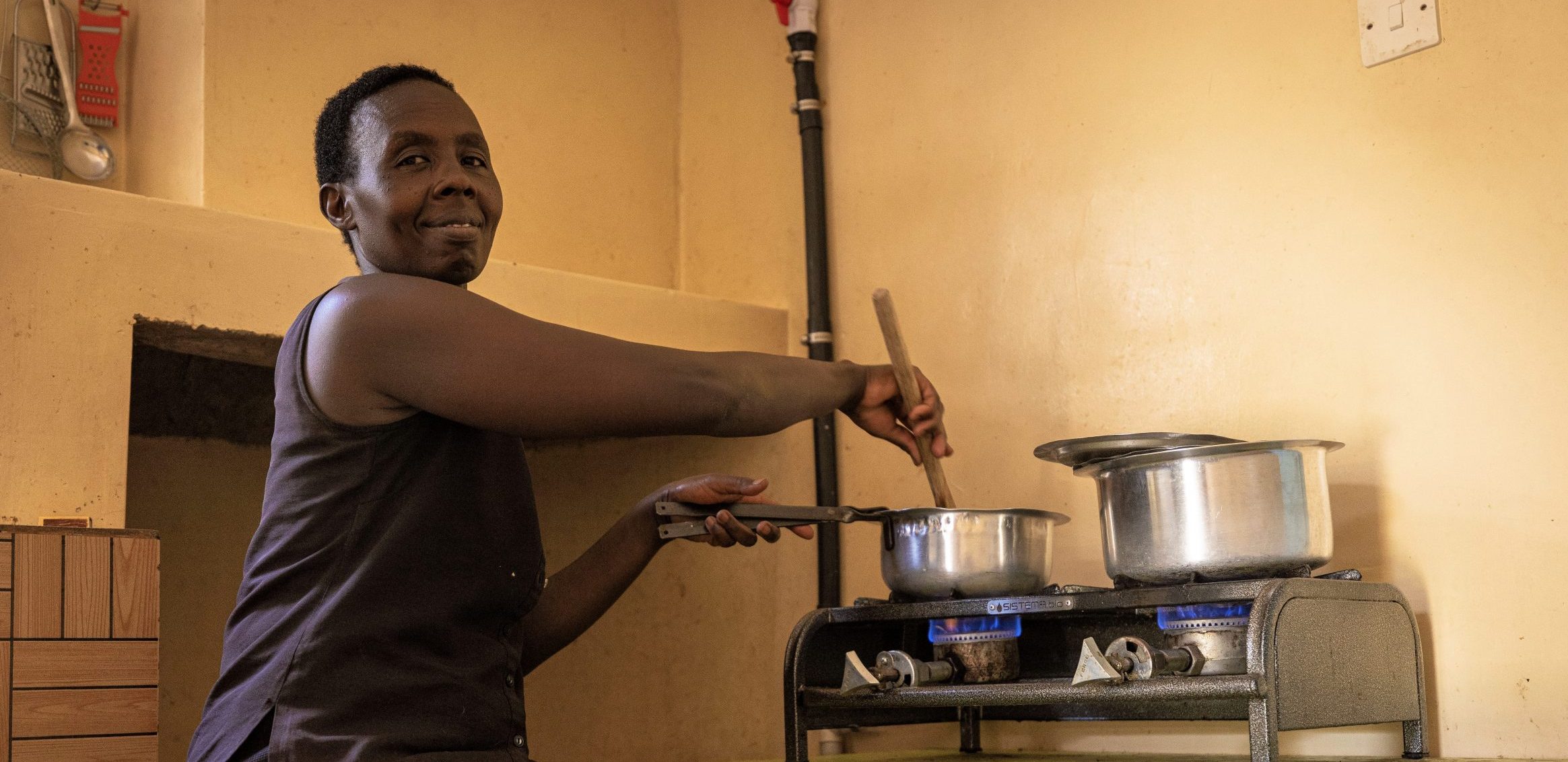By Jillene Connors Belopolsky, CCA’s Chief of Staff and External Affairs, and Sheila Oparaocha, Director of the ENERGIA International Network on Gender and Sustainable Energy.
This week, thousands of decision-makers, women’s rights organizations, and movements are gathering in Kigali, Rwanda for Women Deliver 2023, the world’s largest conference on gender equality and the health, rights, and wellbeing of girls and women in the 21st century. It is an event that should give us hope for progress, as we come together to address the myriad challenges facing women worldwide. However, amidst the flurry of discussions and debates, there is a critical issue that remains curiously absent from the global women’s agenda – access to clean cooking.
It may be surprising to some that the way women cook can have such a profound impact on gender equality. Yet, when we examine the facts, the connection becomes undeniable. In developing countries, where traditional cooking methods are prevalent, millions of women and girls are forced to rely on solid fuels like wood, charcoal, and dung for their cooking needs. The smoke emitted from these fuels causes severe health problems, leading to respiratory diseases, lung cancer, and premature death. The burden of this health crisis falls disproportionately on women and children, who spend more time in close proximity to the smoke while cooking or processing fuel.
Moreover, the time and effort required to gather these fuels further exacerbate gender inequalities. Women and girls spend countless hours each day collecting firewood, often trekking long distances, leaving them vulnerable to sexual assault, trafficking, and other forms of violence. These arduous tasks often prevent them from pursuing education, earning a livelihood, and participating in community activities. The absence of clean cooking perpetuates the cycle of poverty and reinforces gender disparities, trapping women in a vicious cycle from which escape seems impossible.
If we truly care about women, we must recognize that access to clean cooking is a fundamental human right. It is not a luxury or an afterthought. Clean cooking solutions, such as improved cookstoves and cleaner fuels, exist and can make a world of difference. These technologies reduce deadly smoke emissions, improve air quality, and protect the health of women and their families. They also save time and energy, liberating women from the burden of fuel collection, allowing them to pursue education and income-generating activities, and contributing to economic empowerment.
Furthermore, clean cooking solutions have a positive ripple effect on the environment and climate change. Traditional cooking practices contribute to forest loss, soil degradation, and greenhouse gas emissions. By transitioning to cleaner alternatives, we can mitigate climate change, protect ecosystems, and build a sustainable future for all.
It is essential to acknowledge that addressing the issue of clean cooking goes beyond mere technology. It requires a comprehensive approach that involves collaboration between governments, NGOs, and private sector entities. Governments must prioritize clean cooking on their development agendas, allocating resources to promote access to clean energy and supporting the adoption of clean cooking technologies. NGOs and civil society organizations should advocate for clean cooking as a central pillar of gender equality and push for policy changes that facilitate its implementation. The private sector can contribute by investing in research, innovation, and the production of affordable and sustainable cooking solutions.
In all these efforts, women must not continue to be viewed as victims or beneficiaries, but rather as critical agents of change and progress. Women are essential to the widespread adoption and use of clean cooking solutions: their agency as household decision makers and consumers should not be underestimated; the clean cooking sector presents opportunities for women to make their mark in a growing industry; and their involvement as employees & entrepreneurs helps businesses thrive.
As leaders gather at Women Deliver 2023, let us not ignore the silent crisis that affects one third of the world’s women. We cannot achieve true gender equality without addressing the issue of clean cooking. It is time to break the cycle that bind women to unhealthy and inefficient cooking practices. If we truly care about women, their health, their empowerment, and their rights, we must help change the way they cook. It is an investment that will pay off in the lives of women and girls, and their communities, around the world. It is time to put access to clean cooking on the global agenda and work towards a future where no woman is left behind in the quest for gender equality.
This opinion piece was originally published by the Clean Cooking Allinance: https://cleancooking.org/news/op-ed-no-gender-equality-without-access-to-clean-cooking/







